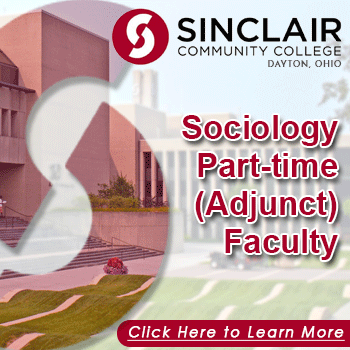This job has Expired

Life Science Research Professional 1
Job Description
The Department of Pediatrics at Stanford University seeks a Life Science Research Professional 1 to join Dr. Anca Pasca’s and Dr. Natalia Gomez-Ospina’s laboratories to perform basic laboratory management functions and activities involved in defined research projects and independently conduct and analyze experiments.
The research focus of Dr. Pasca’s lab is to understand molecular mechanisms underlying neurodevelopmental disorders associated with premature birth and neonatal brain injury with the long-term goal of translating the lab’s findings into therapeutics. The research team employs a multidisciplinary approach involving genetics, molecular and developmental neurobiology, animal models, and neural cells differentiated from patient-derived induced pluripotent stem (iPS) cells. In particular, the lab uses a powerful 3D human brain-region-specific organoid system developed at Stanford (Nature Methods, 2015; Nature Protocols, 2018) to ask questions about brain injury during development.
Dr. Gomez-Ospina’s lab uses genome editing and hematopoietic stem cell transplantation to treat rare genetic diseases. The lab does translational work using several mouse model systems developed in the lab.
Responsibilities for this position include general lab maintenance, including ordering lab supplies, general laboratory maintenance, supply inventory, safety recording, and animal husbandry. Experiments include neural differentiation of iPSC and cell phenotyping, generation, and characterization of iPSC, tissue collection from mice, and PCR. The successful candidate will have an excellent background in lab management, mouse husbandry, cell culture, and experience in neuroscience. The LSRP would be expected to conduct experiments under the supervision of the PI or other experienced members of the lab. Because the LSRP will frequently interact with a team of graduate and postdoctoral researchers, they must have the ability to communicate scientific concepts both verbally and in writing.
Duties include:
· Plan approach to experiments in support of research projects in lab and/or field based on knowledge of scientific theory.
· Independently conduct experiments; maintain detailed records of experiments and outcomes.
· Apply the theories and methods of a life science discipline to interpret and perform analyses of experiment results; offer suggestions regarding modifications to procedures and protocols in collaboration with senior researcher.
· Review literature on an ongoing basis to remain current with new procedures and apply learnings to related research.
· Contribute to publication of findings as needed. Participate in the preparation of written documents, including procedures, presentations, and proposals.
· Help with general lab maintenance as needed including ordering lab supplies, general laboratory maintenance, supply inventory, safety recording, and animal husbandry
· Assist with orientation and training of new staff or students on lab procedures or techniques.
*- Other duties may also be assigned
Stanford University provides pay ranges representing its good faith estimate of what the University reasonably expects to pay for a position. The pay offered to a selected candidate will be determined based on factors such as (but not limited to) the scope and responsibilities of the position, the qualifications of the selected candidate, departmental budget availability, internal equity, geographic location, and external market pay for comparable jobs. The pay range for this position working in the California Bay area is $53,000 to $76,000.
DESIRE QUALIFICATIONS:
Previous experience working in biological sciences or related field with experience in a laboratory setting. Experience with molecular and cell biology, animal work, cell culture and aseptic techniques, viral production etc Scientifically curious, reliable, and results-oriented with the ability to work well as part of a team.
EDUCATION & EXPERIENCE (REQUIRED):
Bachelor's degree in related scientific field.
KNOWLEDGE, SKILLS AND ABILITIES (REQUIRED):
· General understanding of scientific principles. Demonstrated performance to use knowledge and skills when needed.
· Demonstrated ability to apply theoretical knowledge of science principals to problem solve work.
· Ability to maintain detailed records of experiments and outcomes.
· General computer skills and ability to quickly learn and master computer programs, databases, and scientific applications.
· Ability to work under deadlines with general guidance.
· Excellent organizational skills and demonstrated ability to accurately complete detailed work.
CERTIFICATIONS & LICENSES:
None
PHYSICAL REQUIREMENTS*:
· Frequently stand, walk, twist, bend, stoop, squat, grasp lightly, use fine manipulation, grasp forcefully, perform desk-based computer tasks, use telephone, write by hand, lift, carry, push and pull objects weighing over 40 pounds.
· Occasionally sit, kneel, crawl, reach and work above shoulders, sort and file paperwork or parts.
· Rarely climb, scrub, sweep, mop, chop and mix or operate hand and foot controls.
· Must have correctible vision to perform duties of the job.
· Ability to bend, squat, kneel, stand, reach above shoulder level, and move on hard surfaces for up to eight hours.
· Ability to lift heavy objects weighing up to 50 pounds.
· Ability to work in a dusty, dirty, and odorous environment.
· Position may require repetitive motion.
*- Consistent with its obligations under the law, the University will provide reasonable accommodation to any employee with a disability who requires accommodation to perform the essential functions of his or her job.
WORKING CONDITIONS:
· May require working in close proximity to blood borne pathogens.
· May require work in an environment where animals are used for teaching and research.
· Position may at times require the employee to work with or be in areas where hazardous materials and/or infectious diseases are present.
· Employee must perform tasks that require the use of personal protective equipment, such as safety glasses and shoes, protective clothing and gloves, and possibly a respirator.
· May require extended or unusual work hours based on research requirements and business needs.
Add or subtract physical requirements based on the requirements of your specific job. (remove this statement for posting
*Please mention you saw this ad on AcademicJobs.*




